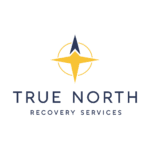Court-ordered rehab, also known as court-appointed rehab or court-ordered rehabilitation, is a legal alternative to incarceration for individuals facing substance abuse-related offenses. This approach recognizes addiction as a health issue rather than solely a criminal one, aiming to provide treatment and support to reduce recidivism and promote long-term recovery.
What Is Court-Ordered Rehab?
Court-ordered rehab refers to a mandated addiction treatment program imposed by a judge as part of a legal sentence. This can occur in lieu of jail time or as a condition of probation or parole. The goal is to address the underlying substance use disorder (SUD) contributing to criminal behavior, thereby reducing future offenses and supporting the individual’s recovery journey.
Eligibility for Court-Ordered Rehab
Not all individuals are eligible for court-ordered rehab. Eligibility typically depends on factors such as:
- The nature and severity of the offense
- The individual’s criminal history
- Evidence of substance abuse contributing to the offense
- Willingness to participate in treatment
Judges often consider these factors when determining whether court-ordered rehab is an appropriate alternative to incarceration.
Types of Court-Ordered Rehab Programs
Court-ordered rehab programs can vary based on the individual’s needs and the court’s requirements. Common types include:
Inpatient Rehabilitation
Inpatient programs require individuals to reside at a treatment facility for a specified period. These programs offer intensive therapy, medical supervision, and a structured environment conducive to recovery.
Outpatient Rehabilitation
Outpatient programs allow individuals to live at home while attending scheduled treatment sessions. This option is suitable for those with less severe addictions or significant personal responsibilities.
Intensive Outpatient Programs (IOPs)
IOPs provide a middle ground between inpatient and outpatient care, offering more frequent and longer sessions than standard outpatient programs.
Drug Courts
Drug courts are specialized court programs that focus on rehabilitating individuals with substance abuse issues. Participants undergo regular drug testing, attend treatment sessions, and appear before the court for progress evaluations.
How Long Is Court-Ordered Rehab?
The duration of court-ordered rehab varies depending on several factors:
- Nature and Severity of the Offense: More serious offenses may require longer treatment periods.
- Individual Assessment and Progress: Treatment duration can be adjusted based on the individual’s response to therapy.
- Type of Substance Abuse: Different substances may necessitate varying lengths of treatment.
- Compliance with Program Requirements: Non-compliance can lead to extended treatment durations or legal consequences.
Common durations include short-term programs (30-90 days) and long-term programs (180+ days).
Benefits of Court-Ordered Rehab
Court-ordered rehab offers several advantages over traditional incarceration:
- Addressing Root Causes: By focusing on treatment, these programs aim to tackle the underlying addiction issues contributing to criminal behavior.
- Reducing Recidivism: Individuals who complete rehab are less likely to reoffend compared to those who serve jail time without treatment.
- Cost-Effectiveness: Treatment programs can be more cost-effective than incarceration, reducing the burden on the criminal justice system.
- Improved Quality of Life: Participants often experience better health, relationships, and employment prospects post-treatment.
Challenges and Considerations
While court-ordered rehab has many benefits, it also presents challenges:
- Compliance: Participants must adhere to strict program requirements, and failure to do so can result in legal penalties.
- Access to Quality Treatment: Availability and quality of programs can vary, affecting outcomes.
- Stigma: Individuals may face societal stigma associated with both criminal records and addiction.
True North Recovery Services: Supporting Recovery and Sober Living
At True North Recovery Services, we understand the complexities of addiction and the importance of comprehensive treatment. Located in the Denver Metro Area, we offer outpatient addiction treatment tailored to individuals facing substance use disorders, including opioid and alcohol addiction.
Our approach is built on:
- Compassionate Care: We provide a supportive environment grounded in kindness and respect.
- Holistic Treatment: Recognizing that recovery is a multifaceted journey, we offer personalized treatment plans addressing both addiction and mental health.
- Experienced Team: Our dedicated professionals bring personal and clinical experience to guide clients toward lasting recovery.
Whether you’re navigating court-ordered rehab or seeking support for yourself or a loved one, True North Recovery Services is here to help you find your path to a healthier, fulfilling life.
Conclusion
Court-ordered rehab serves as a vital bridge between the criminal justice system and the healthcare system, offering individuals a chance to address their substance abuse issues constructively. By focusing on treatment rather than punishment, these programs aim to reduce recidivism, improve public health, and provide individuals with the tools needed for long-term recovery.
If you or someone you know is facing court-ordered rehab, understanding the process and available resources is crucial. With the right support and commitment, recovery is not only possible but achievable.


